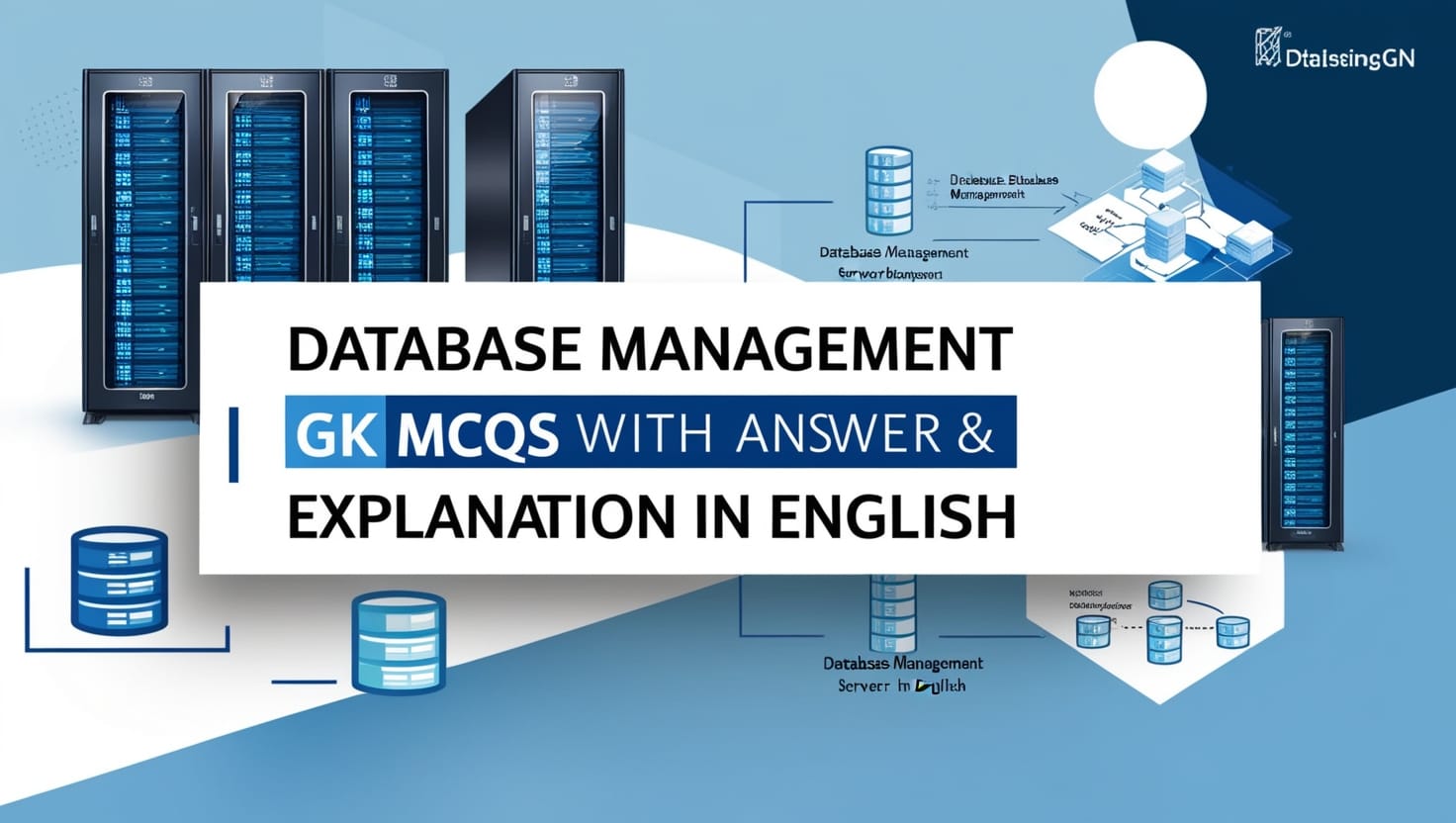
Database management is a crucial aspect of modern technology, ensuring the efficient organization, storage, and retrieval of data. Our article, Database Management GK MCQs With Answer & Explanation in English, provides a comprehensive set of multiple-choice questions designed to test and enhance your knowledge in this field.
Whether you’re a student, professional, or technology enthusiast, these questions, accompanied by detailed explanations, will help you deepen your understanding of database management concepts and practices. Dive in to explore and expand your expertise!
1. What can Structured Query Language (SQL) be used for?
- Create Databases
- Create & Modify Databases
- Create, Modify & Query Databases
- None of the above
Show Answer
Answer: Create, Modify & Query Databases
SQL (Structured Query Language) is a versatile programming language used for managing and manipulating relational databases. It allows users to create, modify, and query databases to retrieve and manipulate data efficiently.
2. Which among the following are not Objects in an Access Database?
- Table
- Form
- Query
- Pivot table
Show Answer
Answer: Pivot table
Microsoft Access is a database management system that allows users to create databases consisting of tables, queries, forms, and reports. However, it’s worth noting that Microsoft removed pivot table functionality in Access 2016.
3. Which of the following is used as an application programming interface with RDBMS?
- VB
- COBOL
- SQL
- All of the Above
Show Answer
Answer: SQL
SQL serves as an application programming interface (API) for Relational Database Management Systems (RDBMS). RDBMS, such as Oracle, MySQL, and SQL Server, are database systems that use SQL to interact with data stored in a structured, tabular format.
4. What is the full form of IMDBMS?
- In-Memory database management system
- In-Module database management system
- Indian Memory database management system
- None of the Above
Show Answer
Answer: In-Memory database management system
IMDBMS primarily stores data in main memory, providing extremely fast data access and processing. This type of database management system is suitable for applications where speed is critical, such as real-time analytics and certain financial systems.
5. Which of the following DBMS is well-suited for data warehouses with a large number of similar data items?
- Columnar database management system
- In-memory database management system
- RDBMS
- NOSQL DBMS
Show Answer
Answer: Columnar database management system
Columnar databases are designed to handle large volumes of data, particularly in data warehousing scenarios. They store and process data by column rather than by row, making them efficient for analytical queries involving many similar data items.
6. What are the advantages of using a DBMS?
- Data security
- Data abstraction
- Data integrity
- All of the Above
Show Answer
Answer: All of the Above
Database Management Systems (DBMS) offer several advantages, including data security, which involves user access control and encryption; data abstraction, which hides complex implementation details from users; and data integrity, which enforces consistency and accuracy in the database.
7. Who is known as the father of the DBMS?
- Van Neumann
- E.F.Codd
- Steve Jobs
- Bill Gates
Show Answer
Answer: E.F.Codd
E.F. Codd is widely recognized as the “Father of Database Management Systems” for his groundbreaking work in developing the relational database model. His work laid the foundation for the structured and efficient storage and retrieval of data.
8. What are the basic components of a relational database model?
- Table
- Record
- Field
- All of the Above
Show Answer
Answer: All of the Above
The basic components of a relational database model include tables (to store data), records (also known as rows, which are individual data entries within tables), and fields (also known as columns, which represent attributes or data elements).
9. Who is the father of MySQL?
- Charles Babbage
- Michael Wideneus
- Allen Jobs
- Madam Kama
Show Answer
Answer: Michael Wideneus
Michael Widenius is often referred to as the “Father of MySQL” for his significant role in the development of the open-source relational database management system, MySQL.
10. What is the name given to the skilled professional who directs all activities related to an organisation’s database?
- System Administrator
- System Manager
- Database administrator
- Database Manager
Show Answer
Answer: Database administrator
A Database Administrator is responsible for managing and maintaining an organization’s database systems. Their role involves tasks such as database design, security, performance optimization, and backup and recovery.







